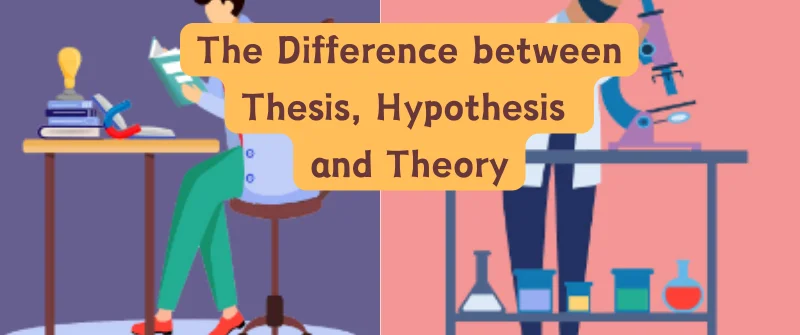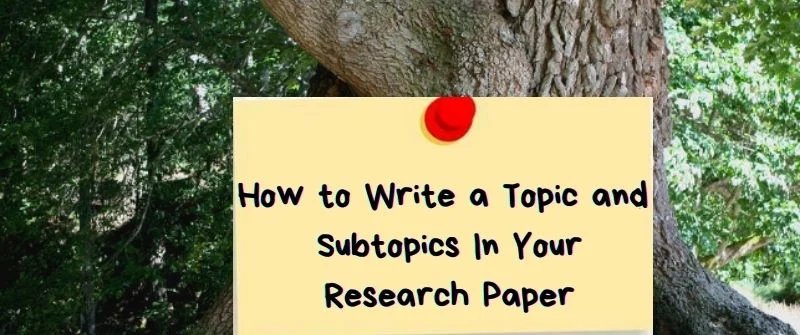Thesis vs Hypothesis vs Theory: The Differences and Examples

Many students may have difficulty understanding the differences between a thesis, a hypothesis, and a theory. It is essential to understand their differences. Such an understanding will be instrumental.
This is especially true when writing complex research papers that require a thesis with a hypothesis and theories. We have gathered from the responses of our college writing service that the difference between the three is confusing.
This article is meant to explain the differences between a thesis, a hypothesis, and a theory.
Difference between Hypothesis and Thesis
There are significant differences between the hypothesis and thesis. While they seem related on the surface, their differences are huge, both in concept and practice.
A hypothesis is a proposed explanation of something or a phenomenon. A scientific hypothesis uses a scientific method that requires any hypothesis to be tested. As such, scientists and researchers base their hypotheses on observations that have been previously made and that the available or prevailing scientific theories cannot explain.
From the definition of a hypothesis, you can see that theories must be included in any scientific method. This is why this article tries to differentiate a thesis, a hypothesis, and a theory.
Moving forward, a thesis can be defined as a written piece of academic work submitted by students to attain a university degree. However, on a smaller scale, there is something called a thesis statement.
This is written in the introduction of a research paper or essay supported by a credible argument. The link between a hypothesis and a thesis is that a thesis is a distinction or an affirmation of the hypothesis.
This means that whenever a research paper contains a hypothesis, there should be a thesis that validates it.
People Also Read: Is using an Essay Writing Service Cheating? Is it Ethical?
What is a Hypothesis?
A hypothesis can be defined as the proposed or suggested explanation for an occurrence, something, or a phenomenon. It should be testable through scientific methods. Scholarly works should have a hypothesis because the observed phenomena could not be explained using the prevailing scientific theories, hence the reason why it should be tested.
Testing the hypothesis may result in the development of new or improved scientific theories that benefit the discipline and society in general.
What is a Thesis?
A thesis is a piece of academic work submitted by students to attain a university degree. When used as a stand-alone word, it denotes academic papers written by university students. Theses are mostly written by those pursuing postgraduate degrees at the end of their courses. They demonstrate their proficiency in their disciplines and the topics they have selected for research.
However, when a thesis refers to a statement, it denotes the statement written in the introduction of a research paper or essay. A credible argument supports a thesis.
Every research paper must have a thesis statement that acts as a guide to what the research will be all about. It is possible to receive very poor grades or even score a zero if your research paper lacks the thesis statement.
What is a Theory?
A theory can be defined as a rational form of abstract perspectives or thinking concerning the results of such thinking or a phenomenon. The process of rational and contemplative thinking is mostly associated with processes such as research or observational study.
As such, a theory can be considered to belong to both scientific and non-scientific disciplines. Theories can also belong to no discipline.
From a modernistic scientific approach, a theory can mean scientific theories that have been well confirmed to explain nature and that are created in such a way that they are consistent with the standard scientific method. A theory should fulfill all the criteria required by modern-day science.
A theory should be described in a way that scientific tests that have been conducted can provide empirical support or contradiction to the theory.
Because of the nature by which scientific theories are developed, they tend to be the most rigorous, reliable, and comprehensive when it comes to describing and supporting scientific knowledge.
The connection between a theory and a hypothesis is that when a theory has not yet been proven, it can be referred to as a hypothesis.
The thing about theories is that they are not meant to help the scientist or researcher reach a particular goal. Rather, a theory is meant to guide the process of finding facts about a phenomenon or an observation.
People Also Read: How to Use Personal Experience in Research Paper or Essay
Difference between a Theory and a Thesis
A theory is a rational form of abstract perspectives or thinking concerning the results of such thinking or a phenomenon. The process of rational and contemplative thinking is mostly associated with processes such as research or observational study. On the other hand, a thesis is a written piece of academic work that is submitted by students to attain a university degree.
It denotes academic papers that are written by students in the university, especially those pursuing postgraduate degrees, at the end of their courses to demonstrate their proficiency in their disciplines and the topics they have selected for research.
To understand the application of these, read our guide on the difference between a research paper and a thesis proposal to get a wider view.
How to Write a Good Hypothesis
1. Asking a question
Asking a question is the first step in the scientific method and the question should be based on who, what, where, when, why, and how. The question should be focused, specific, and researchable.
2. Gathering preliminary research
This is the process of collecting relevant data. It can be done by researching academic journals, conducting case studies, observing phenomena, and conducting experiments.
3. Formulating an answer
When the research is completed, you should think of how best to answer the question and defend your position. The answer to your question should be objective.
4. Writing the hypothesis
When your answer is ready, you can move to the next step of formulating the hypothesis. A good hypothesis should contain relevant variables, predicted outcomes, and a study group that can include non-human things. The hypothesis should not be a question but a complete statement.
5. Refining the hypothesis
Though you may skip this step, it is advisable to include it because your study may involve two groups or be a correlational study. Refining the hypothesis will ensure that you have stated the difference or relationship you expect to find.
6. Creating null and alternative hypotheses
A null hypothesis (H0) will postulate that there is no evidence to support the difference. On the other hand, an alternative hypothesis (H1) posits that there is evidence in support of the difference.
People Also Read: Research Paper Graph: How to insert Graphs, Tables & Figures
Frequently Asked Questions
Difference between thesis and hypothesis example
Thesis: High levels of alcohol consumption have detrimental effects on your health, such as weight gain, heart disease, and liver complications.
Hypothesis: The people who consume high levels of alcohol experience detrimental effects on their health such as weight gain, heart disease, and liver complications.
What is the difference between a summary and a thesis statement?
A summary is a brief account or statement of the main points from the researches. A thesis statement is a statement that is written at the end of the introduction of a research paper or essay that summarizes the main claims of the paper.
Difference between hypothesis and statement of the problem
A hypothesis can be defined as the proposed or suggested explanation for an occurrence, something, or a phenomenon. The same should be testable through scientific methods. Conversely, a statement of a problem is a concise description of the issue to be addressed on how it can be improved.

When not handling complex essays and academic writing tasks, Josh is busy advising students on how to pass assignments. In spare time, he loves playing football or walking with his dog around the park.




